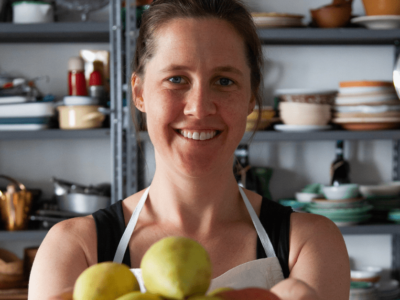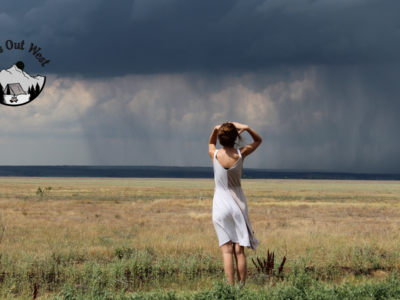For Reasons to Hope week 35 Noah Schumacher, pastor of Compassion Church in Canton, Ohio, interviews songwriter, performing artist, worship leader, Eric Maitlen who with his wife Jillian, founded Two Eight Ministries. For over a decade Two Eight has specialized in community outreach, conference worship, youth ministry, addiction recovery/prevention, and cross cultural ministry. “Our mission is to make music that brings us back to God and each other.” Based in Indianapolis, Two Eight is focused on bringing God’s healing to the opioid epidemic as it continues to claim untold lives in Indiana and across the country. On Reasons to Hope, Eric and Noah tackle stigmas surrounding addiction and challenge us to bring Gospel hope to those caught in the midst of it.
Here are some highlights from Noah and Eric’s conversation, and you can watch the full episode on IGTV.
Noah:
Right off the bat, I just want to ask you, Eric — Two Eight Ministries — can you just give us a quick rundown of what that name means?
Eric:
Yeah that’s a good question. I went from Indiana University into missions work with a real left turn. I didn’t even know what missions work looked like when I first became a Christian at IU. Trying to follow the teachings of Jesus and all this, I ended up moving to India for a year after college, and really just saw poverty for the first time. I saw unreached people groups for the first time, people who had never heard the gospel and just saw a lot of things I’d never seen. I had this heart for global missions, came back and married my wife Jillian, and we make music together. We’ve been married and doing that for 15 years and we needed a band name, the night before Battle of the Bands. We worked for this other nonprofit that did music and missions in over 40 countries and my mentor Jim said, just call it Two Eight, from Psalm 2:8 — “Ask me for the nation’s…” and we just kept the name. It went from a band to a nonprofit, but we still do international work with music. We’ve taken a break for the reasons we’re talking about today, to focus more on the opioid epidemic, but our first love is international music and missions and partnering with nonprofits and recovery efforts and faith movements overseas.
Ask me, and I will make the nations your inheritance, the ends of the earth your possession.
-Psalm 2:8
Noah:
I love it. And I love how you guys are creatively using music into the ministry of what you guys are called to do. I’m excited because we get to jump into a mutual passion which is helping those who are battling substance abuse disorder, or as many people call it, drug addiction. I hope that maybe in this conversation, you can help shed light on how you’re combining music into battling the opiate addiction in our country.
Eric:
in 2017, 2018, we started seeing the opioid epidemic hitting Indiana really really hard. It had already been happening, but it was interesting, because my wife and I have always had a heart for recovery ministry. She came out of a lifestyle substance abuse disorder, and she would tell you she never went to high school sober. We’re the most unlikely people to do what we do, but you know, Julian’s story of recovery has just been something that’s been a big part of our ministry. We want young people to know,’ hey, there is hope. There is life on the other side of this, you can beat this.’ And so, for us to have been working with recovery efforts since 2005 and to not know what was really happening in our own backyard, around the overdose epidemic, especially around opioids and fentanyl things like this, I felt like aliens landed on the planet and I was the last one to find out. How could I not know this is happening at the scale it was happening?
Overdose had already become the leading cause of accidental death by 2017. We lost 70,000 Americans to fatal overdoses in 2017. And to put that in perspective, that’s a 737 going down every single day. Yesterday, today, it’s gonna happen again tomorrow. And so we knew we need to start talking about it. I started going to every single call up meeting I could go to around opioids and all of that was happening, and I found that all these meetings were under-attended, nobody really cared because we’ve been taught from a young age, the whole DARE scare campaign, like those people are criminal, you know, stay away from those people don’t let your kids hang out with these people. But we’ve hung out with people in recovery for long enough; they’re some of the best human beings I know, because they’ve gone beyond sobriety. They’re helping other people find freedom. They’re not scared of the dark, they’ll go talk to anybody, and help people that most people would be terrified of. They’ll go into prisons, they’ll go into the places that most Christians don’t want to go, and bring hope and recovery and use their life to help another.
So that stigma that surrounds addiction is something that I really care a lot about and I’ll tell you why I was going to all these call out meetings. I was meeting some of our bureau chiefs and different people who were working on a health care level. I met coroners, I met police officers, first responders and just learned a lot, and I was like ‘we have to tell people what’s happening.’
And these meetings are not very effective because you’re in this board room atmosphere with fluorescent lights and a PowerPoint slide. I had a family member who was struggling with a heroin addiction.
And so I’ve got a face and I’ve got a name, and these charts and stats and graphs aren’t cutting it.
It became personal when I found out my niece, Olivia, had been using heroin, and it’s because she started using her mom’s pain pills when she was nine. She’d steal her mom’s opioids and how you gonna beat that, you know? It falls under a mental health disorder because it does change your brain chemistry so much that for someone recovering from an opioid use disorder, it can take your brain up to two years to normalize. When you and I would have a piece of chocolate or see the sun rise you know and have that dopamine hit like, ‘oh, that’s beautiful. This feels good.’ No, it’s going to take their brain up to two years to feel that way again because it’s so thrown out of whack. So we knew we had to start talking about this.
We reached out to one of my best friend’s who is a producer for PBS here in Indianapolis and he’d been doing hard pieces around the state following the epidemic. I said we’ve got to do something — we’ll use film, and we’ll use music. I called all my musician friends together we said we got to find a way to get this further out so we built a film experiences that runs about 40 minutes. It takes people through what’s happening and a lot of the same information I was getting at these meetings, I put into this concert. Music is a language of our culture so we use Coldplay, we use Motown, we use John Mellencamp because he’s from Indiana. We use Jackson Five because they’re from Indiana, but we wanted to just find a new way of waking people up to what was happening.
Noah:
I love the creativity of what you guys are doing and what strikes me the most, you’re taking the gospel of Jesus and doing things that I think most church folk and Christians in our country wouldn’t wouldn’t expect. One of my big things that I struggle with in this whole conversation is the stereotypes I know that are out there. I would love for you to share a little bit about how your experience in this ministry has shattered those walls.
Eric:
As somebody who does have a Christian faith background, I care about us coming together. I care about us removing the walls that keep us from loving each other well, and putting these people over in this corner. I remember when we first started this that I really felt like God put on my heart, ‘I want you to be so close to these people that people assume you’re a drug addict. I want you to get so far in their corner that you get labeled among them,’ and I had to just be okay with that. I had to realize that the church is going to start judging me for hanging out with these people more. I’ve seen a lot of other Christians do that too and I love seeing pastors step further to that like you do.
There shouldn’t be any barriers that keep us from each other, and it also matters to me a lot because the criminal stereotype around substance abuse is just not accurate. because if you For instance, I have a friend who works at Fairbanks, one of the biggest treatment facilities here in Indianapolis where my niece detoxed with medically assisted treatment. This guy has been sober for over 10 years, he helps so many people get their families back on track, back together he keeps people alive, you know, helps them find wellness and sobriety. He has people in his neighborhood who won’t let their kids go to his house because of his background in recovery. He’s been alcohol free for over 10 years. He has the driest house, the safest house in his entire neighborhood, and parents won’t let their kids go over there.
Some of the best human beings I meet are these people who come out of that addiction because they have a real battle. They know what it means to experience freedom and to hold on to it, to fight for it and treasure it. I think a lot of us who’ve never had a chemical dependency, we don’t even know what that battle is like.
The other reason it’s important to talk about is because I’m from a small town. And so my family now has the stigma that we have addiction in our family. ‘You know the Maitlens, we thought they were just really good Methodists, but they have a drug addict in their family.’ In a small town, that stigma will stay on you for generations. I’m serious. Not only is it embarrassing, but it’s literally killing people because some people won’t ask for the help they need, because they don’t want to tell people what’s going on. They don’t want to be excluded from their church, they don’t want to have their friends looking sideways at them and stop inviting them to parties and stop letting their kids come around their kids, so they just don’t talk about it. And then what happens — they never find the help they need and we end up losing a loved one to overdose, instead of asking for help.
Noah:
If I understand what your mission is and what you guys are doing, you’re breaking those walls down so that you can create environments to have that conversation that is real and safe and stigma-free, to to help bring these people back into a place of belonging in their community.
Eric:
Yeah, I’d say if we think sobriety is what we’re all shooting for with the opioid epidemic then we’ve got it wrong. A lot of times what’s underneath all of that use, whether you use heroin or eight hours of Netflix bingeing, is there’s trauma, there’s depression, there’s things that have not been dealt with that play a lot into our mental health. There’s so much going on that is beyond just sobriety, getting someone sober is just the start.
But if we never get to a place. If we never get to a place where we say look, they’re not those people over there, they’re with me. A drug addict isn’t just some person who lives under a bridge in Manhattan, they’re all around you. I promise you, you have people you know, people who are struggling with this, but they’re not going to tell you, and they’re not telling you because they don’t know if you can handle that. And we as Christians, I feel like we should be the front line of reconciliation to say ‘they’re with me.’ When someone says ‘they’re not going to lunch with us,’ we say ‘yeah they’re going with us and they’re sitting at our table.’ […]
Learn more about Two-Eight Ministries and how you can help at twoeightministries.com
Writing the Book of Hope
We’ve been writing the Book of Hope together for 35 weeks now, but it’s never too late to join us. Here’s all you need to get started.





 Copyright
2024
Root and Vine
Copyright
2024
Root and Vine